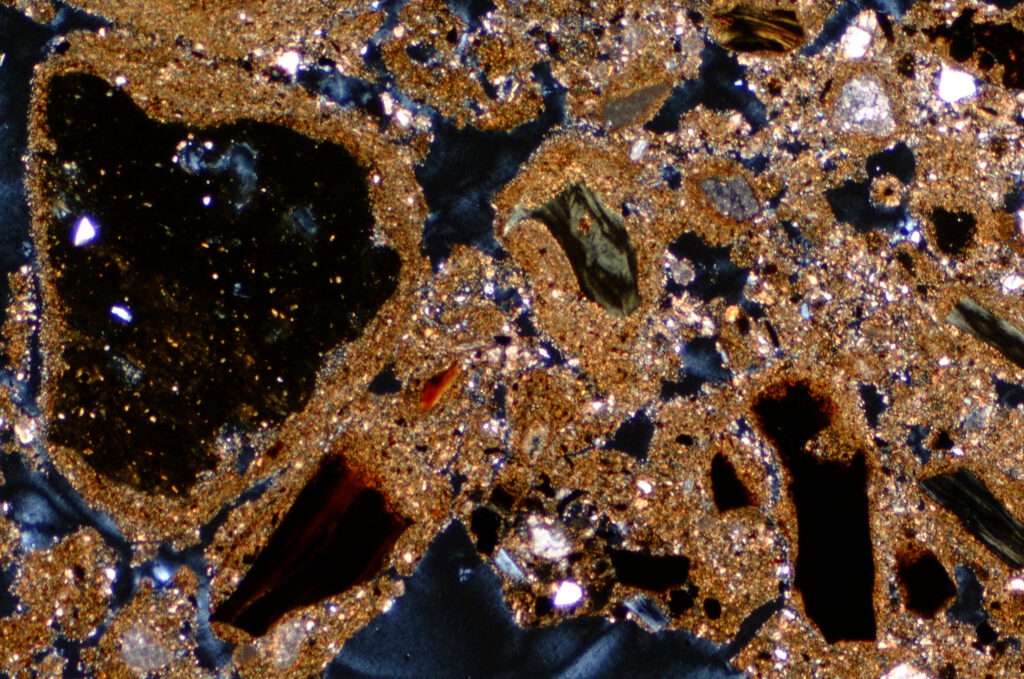Geosciences

The different geoscience working groups at the University of Tübingen will analyse microscopic components and fabrics using grain mounts, scanning electron microscopy, studying micromorphological thin sections, in situ elemental analysis of resin-indurated sediment blocks, bulk elemental analysis, extraction and identification of soluble salts with nitrogen isotopic analysis of the nitrate fraction, and mineralogical analysis. The procedures were develeoped by the Geosciences and aided with analytical support by the Terrestrial Sedimentology and Climatology and the Biosphere. In addition, novel isotopic tracers and lipid biomarkers will be explored using approaches previously developed by Geoecology and Geo- and Biosphere Interaction-groups. One study will focus on biomineralization of iron and manganese oxides during the decomposition of biogenic wastes in collaboration with the Geomicrobiology.
Laboratories and Collections
The Geo- and Environmental Sciences department on the Morgenstelle offeres different laboratories. Special technical equipment is allowed to be used if this has been agreed with the operating working group. The collections of the Geosciences are located in different buildings.
Contact persons and research areas
(University of TÜbingen)
Climatology and the Biosphere
The group studies the climate through stable isotope analysis, total carbon content and major/trace elements. A key element are tracers for water isotope changes, and vegetation. This isotope variability can be measured on natural palaeoclimate archives (ice, speleothems, trees, foraminifera), as well as modeled by isotope-enabled general circulation models.
Terrestrial Sedimentology
The Terrestrial Sedimentology is involved in investigating the interactions between people and their environments, focusing on abrupt environmental changes that may influence behavioral changes by people, and vice versa on instances where people may overwhelmingly contribute to a breach of environmental thresholds, leading to landscape instability.
Environmental Systems Analysis
The group designs models for human impacts on environmental systems (and vice versa) for GACT. The focus is on interdisciplinary approaches to analyze the processes and interactions of environmental systems.
Geomicrobiology
The working group investigates biomineralization in soils and various decomposition pathways on GACT-samples.
Geoecology
The Geoecology will analyse the breakdown of organic material in soils and the taphonomy of stable and labile components influencing soil biodiversity for GACT.
Geo-Biosphere Interaction
The group uses biomarker and molecular biological approaches to study the interaction between geo- and biosphere.